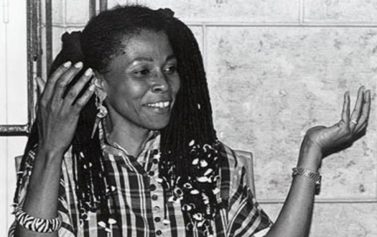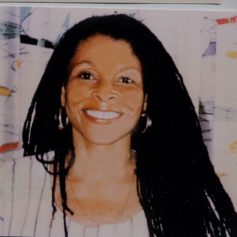When Malik Wade closes his eyes, it often has little to do with sleep. Instead, the San Francisco native visualizes an extraordinary world, one where the less fortunate succeed despite overwhelming odds, where impoverished urban youth recognize and push past the countless traps society sets for them, and where he rises from the smoldering ashes of his own destruction to erect an inspiring new existence for himself and the larger community.
It is a vision, in numerous ways, that has come to be manifested. Nearly five years ago, Wade, an avid meditator, walked away from the gates of federal prison and began a life far different from the one that had him incarcerated in April of 2000 on drug and gun charges. The former dealer and fugitive who once spent the better part of a decade on the FBI’s Most Wanted list now runs the Scholastic Interest Group (SIG), an acclaimed nonprofit program which mentors young men and student athletes ages 12 to 18 in under-served communities. Wade enjoys productive relationships with key city officials and leaders, including the elected public defender of San Francisco and former mayoral candidate, Jeff Adachi. He is a regular at the city’s juvenile justice courthouse, its schools, and its under-served communities, where he engages and speaks on behalf of young men in need of such a willing and seasoned advocate.
“When I got out, I hit the ground running,” acknowledges Wade, who “wanted the community to know I had reinvented myself. So I started speaking at juvenile homes and high schools. During that time, I was in the process of formulating my own nonprofit organization” and for “the last four years, I’ve been meticulously and methodically building upon my work in the community through my nonprofit and the mentoring of young men.”
Given his brief time on the outside and the depths from whence he came, Wade’s accomplishments are inspiring. In 2013, while building his nonprofit, Wade was accepted into Stanford Law School’s Project ReMADE, an entrepreneurship training program for the formerly incarcerated. Through the program he began speaking on college campuses about his experiences while continuing to engage youth in prison, schools and at the local YMCA. Wade’s visibility on the college circuit led to his co-facilitation of a class at the University of California at Berkeley called “Black and Male in America.” In 2015 he launched a monthly, expenses-paid collegiate tour for his SIG youth. And three months ago Wade took 14 of his mentees on a 10-day cultural excursion to Accra, Ghana.
Such efforts are much needed in a country where many young African-American males risk following in Wade’s former footsteps. An estimated 1 in 4 Black males born today can expect to end up behind bars at some point in their lifetimes. According to a study by The Sentencing Project, African-Americans are incarcerated at more than five times the rate of whites in state prisons, and 10 times the rate of whites in five states. And despite similar rates of drug use between the two groups, the rate of African-Americans arrested for drug charges is almost four times that of whites.
“His salvation is our salvation,” insists Adachi, who recently penned the foreword for Wade’s new autobiography, “Pressure: From FBI Fugitive to Freedom.” As the only elected public defender in the state of California, and a 15-year veteran of the position who has handled more than 3,000 criminal cases, Adachi is well aware of the social value of Wade’s remarkable transformation. “Malik’s triumph against all odds is a testament to what is possible if we help, rather than hinder, the former incarcerated in our communities.”
Those odds were daunting from the start. Raised in San Francisco public housing by a single mother, and separated from a father in federal prison, Wade started selling crack at age 15. After numerous run-ins with authorities for drugs and possession of firearms, Wade was indicted in 1993 and, given his substantial record and fear of a lengthy sentence, fled the country for Canada where he nervously bounced around Vancouver and several provinces for seven years. Once suspicious Canadian authorities began to close in, the exhausted fugitive successfully maneuvered his way back into the United States, crossing the border in the trunk of a car. However, not long after, federal authorities finally apprehended Wade on April 12, 2000 in Minneapolis. To avoid a life sentence, he immediately pled guilty and received 15 years.
“Once I went to prison, I completely reshifted my paradigm and totally immersed myself in study, studying between 10-12 hours per day,” recalls Wade, who found value in metaphysical works by the likes of Jiddu Krishnamurti and Ra Un Nefer Amen. Although recognizing the need to change “as soon as the feds put those handcuffs on me,” his actual transformation “was a very calm and gradual process that came about through steadfast prayer and meditation, and by trying to remove all of the toxicities and impurities from my body.” Meditation played a particularly valuable role for Wade as “it calmed me down quite a bit and helped me tap into some of those latent powers that were dormant.” This metamorphosis was further buoyed by “having a regimen of waking up every day at 5 in the morning, being disciplined and focused, not using the n-word, trying to remove the misogynistic tendencies from my being, and trying to see the world in a different light.”
Ultimately, Wade’s imprisonment helped him “come to grips with the reality of how my criminal manifestations came about and why I no longer felt it was humane for me to continue in that lane.”
Since being released without a single disciplinary infraction in November of 2012, Wade has forged a lane of his own while sharing his dramatic account with all who will listen. And though his eventful pre-incarceration life makes for a compelling story, he is committed to ensuring others pull from a different script.
“I can’t tell them what to do, but I just warn them about making certain choices and decisions,” says Wade, noting there is no “one particular panacea or universal remedy” for reaching youth. “I talk to them about my life as a living testimony to what can happen if you involve yourself with crime.” Wade adds, “The young men I mentor know that I care because I put so much time into it.”
But, to be clear, the disciplined man who continues to meditate four times a day expects no accolades for visualizing and then actualizing a more extraordinary world for himself and those around him. In a recent interview with KPFA’s Hard Knock Radio, Wade selflessly clarifies his ultimate purpose.
“I feel I have a spiritual, sacred and ancestral duty to do this type of work,” said Wade, who devoted a segment of his recent book to apologizing to those his former life may have harmed. “I certainly don’t deserve any accolades or pats on the back for this type of work because I can visibly see Malcolm or Marcus chastising me about accepting a pat on the back.
“So, as far I’m concerned, I am doing what I should be doing.”

